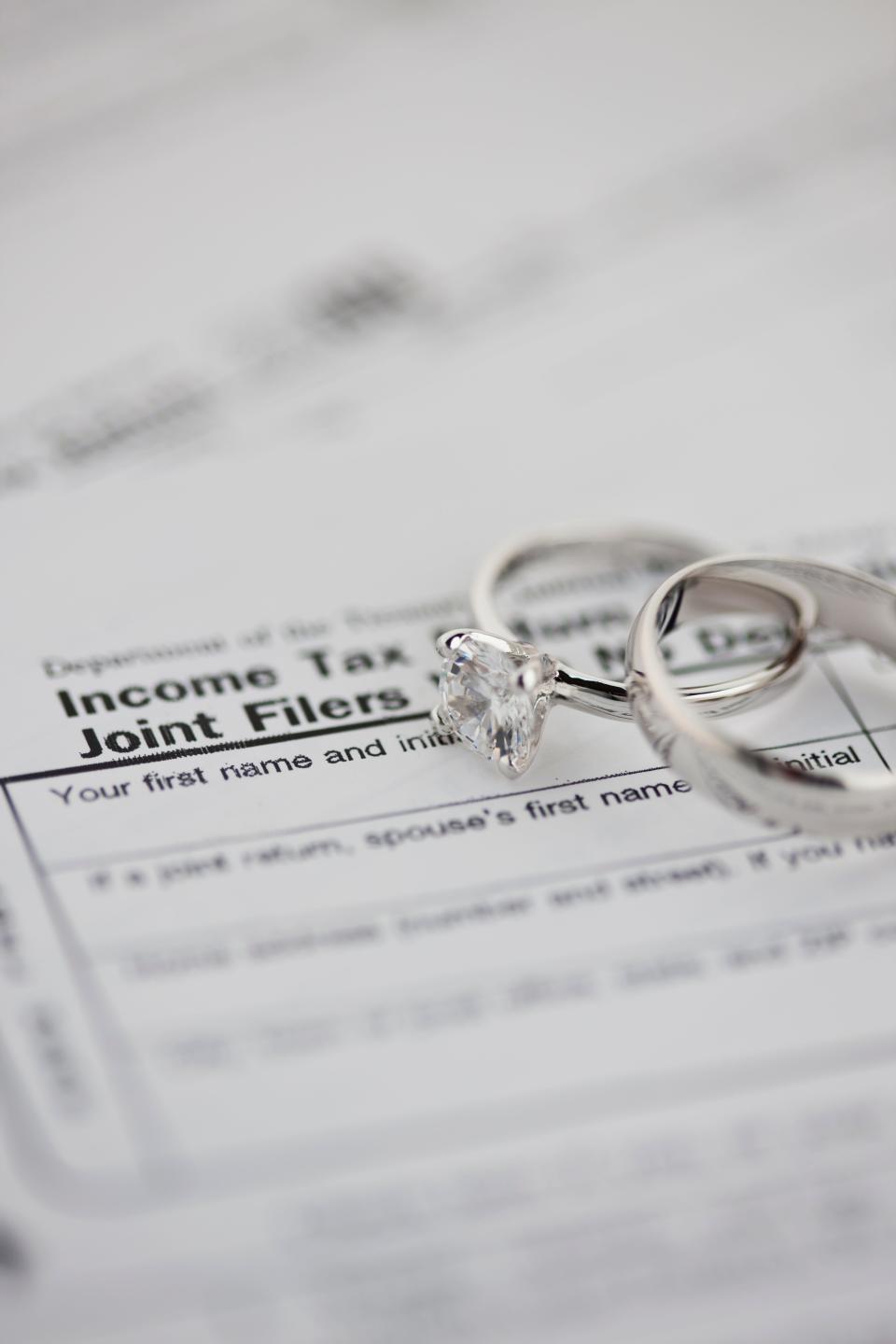Biden's reconciliation plan would expand marriage penalties. That's not build back better.
As negotiations over the trillion-dollar-plus reconciliation package enter their final stages, Congress still has much to agree on what sort of investments to make in child tax credits, child care subsidies, universal prekindergarten and other forms of social spending.
But in determining what should or should not be included in the Build Back Better plan, those in charge of the process should have a version of the Hippocratic oath in mind – “First, do no harm.” Unfortunately, the deal proposed on Thursday by the Biden administration would do real harm to low-income couples, penalizing them for getting married relative to staying single or cohabiting.
Marriage penalties are endemic in our tax code and social welfare programs, meaning that low-income or working-class married couples receive fewer benefits than a similar-situated couple who choose not to marry.
Unfortunately, the Biden administration’s proposed reconciliation package would alter the earned income tax credit to add substantial penalties to tying the knot for working-class couples.
Senators denounce 'marriage penalty'
Thirty-five senators have signed onto a letter written by Sen. Mitt Romney, R-Utah, calling on the congressional leadership to undo some of the damage in the making. As they point out, an unmarried couple making a combined income of $42,000 in 2019 would see their tax bill rise by more than $1,500 if they chose to get married. Under the proposal being put forth in the reconciliation package, the amount of money that couple would pay would nearly double, to $2,700.
Carli Pierson: Build Back Better helps moms. And, yes, billionaires and big corporations should pay.
“Unfortunately, despite its original rollout as part of the ‘American Families Plan,’” Romney and his colleagues note, “the current draft of the reconciliation bill takes an existing marriage penalty in the Earned Income Tax Credit (EITC) and makes it significantly worse.”
This is not a new problem. One of us co-authored a report for the Administration for Children and Families that found our safety-net programs are riddled with marriage penalties, which can range into the tens of thousands of dollars. But it would aggravate a problem that is bad for parents and society. Not only do marriage penalties leave families economically worse off, they also undermine marriage, one of the most essential institutions to a healthy, functioning society, treating it as incidental or unnecessary.
Benefits of marriage
Of course, there is a mountain of evidence that marriage can have tremendous benefits not just for the unmarried partners, but also for their children. On average, children raised in intact, married families are more likely to flourish economically, socially, emotionally and educationally compared with children raised by unmarried parents, according to a Princeton-Brookings report.
One of the top predictors of mobility and opportunity for poor children is the share of two-parent families in their neighborhood, as Harvard economist Raj Chetty and his colleagues have found.
And marriage, by encouraging an attitude of permanence and commitment, stabilizes and strengthens families.

The skeptic may wonder how much public policy can actually make a difference. Yes, marriage penalties may sound bad in theory, but do people actually have their implicit marginal tax rates in mind when making decisions about love and the baby carriage?
In fact, they do. Parents impacted by these policies are keenly aware of the material incentives at play. In a recent focus group of working-class parents in Atlanta, one single mom told us: “Yes, I chose not to marry. ... I get a lot of assistance for my children for myself, so if I did marry or put any other type of income in, I would not qualify for anything.” A wedding would be nice, she added, but when it’s over, “boom, you live life,” and it’s not worth the extra financial burden.
This anecdote is backed up by research.
University of Michigan economist Katherine Michelmore found that single mothers who face a marriage penalty in the EITC are 2.5 percentage points less like to marry compared with those who face no such penalty.
Max Baucus: We need to raise taxes, but do it fairly. And leave existing Roth IRAs alone.
Our nation’s marriage rate has been declining for some time, even before the jarring impact of the pandemic silenced many would-be couples’ wedding bells. As society returns to normal, marriage rates might be expected to rebound. But increasing the marriage penalties in the tax code and safety net programs will nudge couples away from the stabilizing union of marriage, leaving them and any children worse off.

Some provisions in the reconciliation package now in Congress are well-intentioned, and others are debatable, if misguided. Further tilting the scales away from marriage, however, is an outright error that should be corrected in the legislative process, as congressional Democrats weigh the potential deal put forward by the White House. To do otherwise would be to do a disservice to couples just getting by while trying to craft the strongest possible foundation for their life together.
Brad Wilcox (@BradWilcoxIFS) is director of the National Marriage Project at the University of Virginia and a visiting scholar at the American Enterprise Institute. Patrick T. Brown (@PTBwrites) is a fellow at the Ethics and Public Policy Center.
You can read diverse opinions from our Board of Contributors and other writers on the Opinion front page, on Twitter @usatodayopinion and in our daily Opinion newsletter. To respond to a column, submit a comment to letters@usatoday.com.
This article originally appeared on USA TODAY: Biden proposal would increase marriage penalties and hurt families

